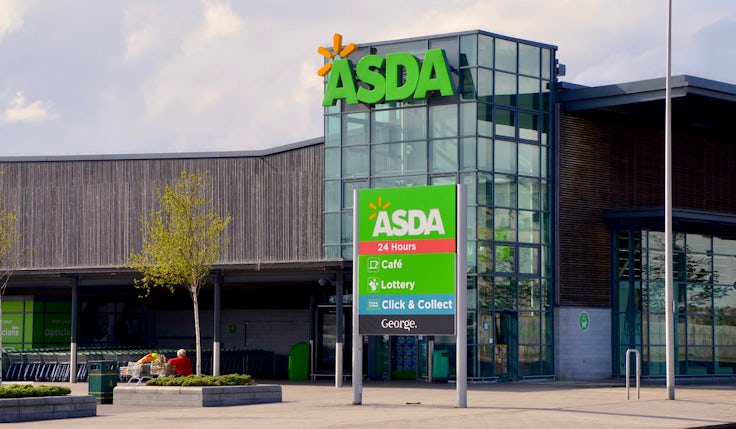Brand trust, ad spend, efficacy of free trials: 5 interesting stats to start your week
We arm you with all the numbers you need to tackle the week ahead.
More than half of Brits believe food and drink brands overclaim health benefits
British consumers are becoming increasingly sceptical about health claims put forward by food and drinks brands.
The nationwide survey of 2,000 people commissioned by strategic communications agency Nexus finds that over half (54%) of Brits believe food and drinks brands overclaim health benefits, with 44% having changed purchasing habits due to mistrust. Millennials and Gen Z are more likely to change purchasing habits (55%) than 45- to 55-year-olds (33%).
Ultra-processed foods (UPFs), in particular, are a sticking point for consumers. Over 60% of Brits say they check product labels for information about UPFs – with over half saying they would completely avoid products they consider to be ultra-processed.
The research also offers suggestions as to how brands can rebuild consumer trust. First, its data shows 48% of consumers say the presence of credible independent certification (such as a Fair Trade logo) would increase their trust in products. While 45% are happy to spend more money on products that are transparent about ingredients on labels – something particularly important as a third of Brits are checking food labels now more than they did a year ago.
The data also shows the impact that marketing can have on this issue with positive brand reputation (38%) and positive media coverage (25%) driving consumer trust on these types of health claims.
Source: Nexus
M&S tops UK’s best brands list
 M&S has topped YouGov’s best UK brands list, further cementing its turnaround under CEO Stuart Machin.
M&S has topped YouGov’s best UK brands list, further cementing its turnaround under CEO Stuart Machin.
The retailer topped the chart with an overall index score of 53.0 placing it ahead of Ikea in second place (46.7) and mobile phone giant Samsung in third (45.5).
YouGov’s BrandIndex looks at the brands with the highest index score, which combines scores on impression, quality, value, satisfaction, recommendation and reputation to give an overall picture of brand health.
The top five was rounded out by Cadbury (42.7) and John Lewis (42.2) – another brand in the middle of a turnaround strategy.
“In the UK, M&S comes top and is reaping the rewards for focusing on improving every aspect of what it does,” says Sarika Rana, head of consumer insight at YouGov about the results. “This is evidence that the public has picked up on the work the company has been doing as part of its long-term improvement plan in recent years.”
The global table has Samsung on top (43.0) followed by YouTube (41.6) and WhatsApp (also 41.6).
The most improved UK brands table is dominated by energy firms as they recover from the public backlash to price hikes following Russia’s invasion of Ukraine in 2022.
British Gas is the most improved brand with its Index score jumping by 7.7 points from -9.5 to -1.8, Octopus Energy improved its index score in the category to 21.6 (up from 14.7) and there were jumps as well for Shell (+6.5 points), BP (+5.6 points) and EDF Energy (+4.4 points).
Source: YouGov
UK advertising spend grows by 9.7% as digital formats drive growth
 Despite economic pressures, UK advertising spend continues to grow, driven by widespread adoption of AI tools and mounting pressure on marketing budgets to deliver short-term wins.
Despite economic pressures, UK advertising spend continues to grow, driven by widespread adoption of AI tools and mounting pressure on marketing budgets to deliver short-term wins.
Between July and September 2024, the UK advertising market grew 9.7% to £10.6bn, marking the first time ad spend has exceeded the £10bn barrier in Q3, according to the Advertising Association and WARC’s quarterly expenditure report. For the first nine months of 2024, total UK ad spend rose 12.2% to £30.1bn.
Most of the growth was in online formats, with online display up 15.2% (inclusive of social media at 17.8%) and search up 12.6%, while legacy media posted mixed results.
Advancements in AI and automation may be accelerating this trend by making the immediate returns on performance-driven channels more visible, prompting brands to invest more heavily.
Out-of-home (OOH) and radio continued to grow in Q3, rising 4.4% and 3.8%, respectively. Meanwhile, six media formats saw declines in ad spend.
Within traditional print media, national news brands registered a decline of -5.7%, regional titles fell -1.6% and magazines dropped -16.4%. Online classified fell –13.5% and cinema experienced a big –26.1% drop, following a return to growth last quarter.
After TV’s strongest quarter in two years in Q2 – driven by the 2024 Men’s Euros – ad spend dipped by -2.6% this quarter. However, BVOD (8.7%) and online radio (10%) both registered an increase, fuelled by live sports coverage, including the Olympics, Paralympics, and the later stages of the Euros.
Meanwhile, direct mail returned to growth (up 12.9%) for the first time in over two years.
Source: AA/WARC
Efficacy of free trials for subscription services falls sharply
 The efficacy of free trials for subscription services appears to be on the decline, with trial conversion rate declining from 46% to 33% between 2023 and 2024, according to data from subscriptions specialist Recurly.
The efficacy of free trials for subscription services appears to be on the decline, with trial conversion rate declining from 46% to 33% between 2023 and 2024, according to data from subscriptions specialist Recurly.
Its 2025 State of Subscriptions report indicates the subscriptions industry is moving away from free trial offers in favour of attracting higher quality subscribers, something that could be attributed to increased penetration nullifying the effectiveness of free trials.
The report also shows there is a growing shift to retention in the industry as acquisition rates have dropped from 4.1% in 2021 to 2.8%, further proof that profitable growth comes from retaining customers and reducing churn rather than overspending on costly acquisition strategies.
Customers are demanding greater flexibility from their subscriptions, the data notes, with diverse plan options (both recurring and one-time) as well as bundles and frictionless plan changes being seen as essential.
Proof of consumers appreciating greater flexibility is that 25% of subscribers would rather pause a subscription than cancel it entirely when offered the choice.
Source: Recurly
Shop price deflation eases in January
 UK shop price deflation eased to 0.7% in January 2025, improving on the 1% deflation record in December 2024, as a result of large discounts on non-food products.
UK shop price deflation eased to 0.7% in January 2025, improving on the 1% deflation record in December 2024, as a result of large discounts on non-food products.
New data from the British Retail Consortium (BRC) and NielsenIQ shows that this remains slightly above the three-month average of -0.8%.
Non-food remains in deflation at -1.8% in January, an increase from -2.4% in the preceding month – driven mainly by discounts on furniture and fashion – and something BRC chief executive Helen Dickinson describes as “good news” for bargain hunters, but “less good” for retailers needing to shift excess stock.
While food inflation eased to 1.6% in January, down from 1.8% in December, Dickinson warned that this signals an early sign of “what’s to come” with month-on-month food prices rising at their fastest pace since April of last year. Fresh food inflation slowed in January, at 0.9% from 1.2%, while ambient food inflation edged down to 2.5% from 2.8% in December.
Dickinson adds: “Price cuts and deflation may not last much longer as retailers will soon feel the full impact of £7bn of new costs announced at the last budget. Higher employer NICs, increased National Living Wage, and a new packaging levy mean that prices are expected to rise across the board.”
Source: BRC/NielsenIQ







